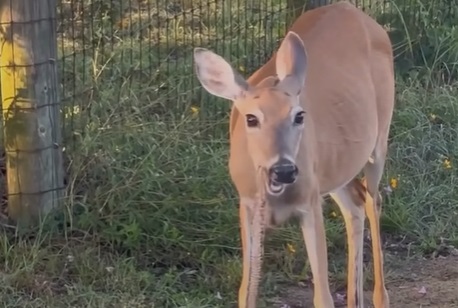While it’s uncommon, there are instances where herbivores might consume meat. Here are some examples:
- Opportunistic Feeding: Some herbivores might opportunistically consume meat if it’s readily available and they’re facing a shortage of their usual food source. For example, during times of scarcity, deer have been observed nibbling on bird eggs or carrion.
- Mineral Supplementation: Sometimes, herbivores may ingest animal matter for specific nutrients not readily available in their plant-based diet. This behavior is known as “zoophagy.” For instance, some herbivores may visit salt licks where they inadvertently consume insects or larvae along with the minerals they seek.
- Accidental Ingestion: In certain situations, herbivores might accidentally consume insects, small vertebrates, or even birds or rodents while grazing on vegetation.
- Cultural or Learned Behavior: In some cases, herbivores may learn to eat meat from observing other animals or due to cultural influences within their population. This is rare but has been observed in some instances.
- Health Issues or Aberrant Behavior: Occasionally, herbivores may exhibit aberrant behavior due to health issues or other factors. In such cases, they might consume meat despite it not being a natural part of their diet.
However, it’s essential to note that these instances are exceptions rather than the norm. The digestive systems of herbivores are typically specialized for processing plant matter, and their nutritional requirements are primarily met through a vegetarian diet.
On that note, check out this video of a deer chomping on a snake:



